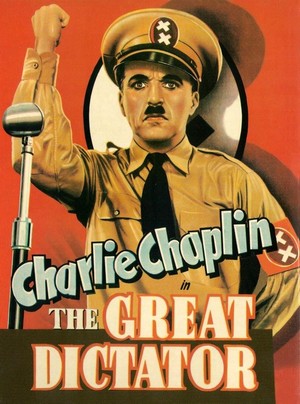
The Great Dictator (1940)
De Dictator

Raiting: ![]() 8,4 /10
8,4 /10
Genre: Comedy
Director: Charles Chaplin
Stars: Charles Chaplin, Jack Oakie and Paulette Goddard
Country: United States
Release date: 15 October 1940
Length: 125 minutes


Raiting: ![]() 8,4 /10
8,4 /10
Genre: Comedy
Director: Charles Chaplin
Stars: Charles Chaplin, Jack Oakie and Paulette Goddard
Country: United States
Release date: 15 October 1940
Length: 125 minutes